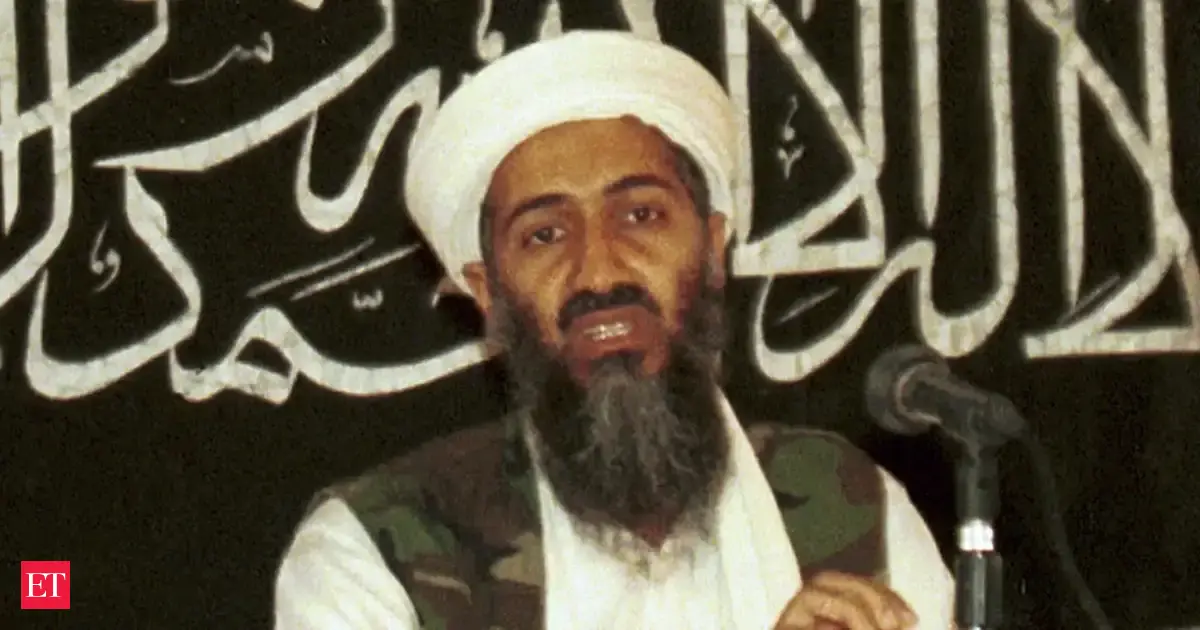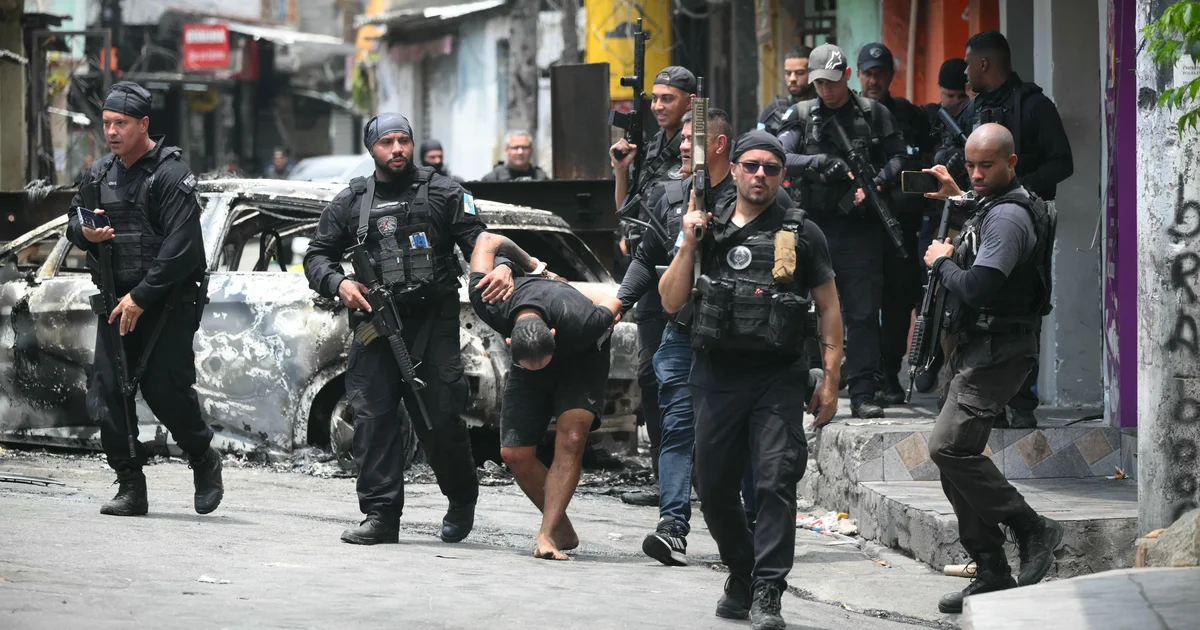Copyright indiatimes

Al-Qaeda in Mali nears historic takeover as JNIM closes in on Bamako. Al-Qaeda is closer than ever to achieving what it has never done before — ruling a country. In Mali, its affiliate Jama’at Nusrat al-Islam wal-Muslimin (JNIM) is tightening its hold across vast parts of the nation, threatening to capture the capital Bamako. Security analysts warn this could make Mali the first-ever country in Al-Qaeda’s 40-year history to fall completely under its control.For months, militants have been pushing south, surrounding the capital and choking key supply routes. Fuel shortages, food blockades, and skyrocketing prices are crippling daily life in Bamako. Markets are running dry. Trucks carrying essentials can’t reach the city. Reports say militants have set up checkpoints, collected taxes, and even established makeshift courts across the countryside — creating what experts call a “shadow government.”Mali’s military junta, which seized power through coups in 2020 and 2021, is struggling to maintain order. The regime’s isolation from Western allies and its reliance on foreign mercenaries have left it weakened and overstretched. Army morale is low, and resources are thin. With militants advancing and infrastructure collapsing, confidence in the government is evaporating.Over 6,000 armed fighters now operate under the JNIM banner across Mali, Burkina Faso, and Niger. They’ve adopted a patient, strategic approach — controlling roads, cutting off logistics, and eroding the state’s reach one region at a time. In many rural areas, Al-Qaeda-linked forces now act as de facto authorities, enforcing rules, resolving disputes, and controlling trade. Their influence has grown not through outright war, but through sustained economic siege and manipulation of local grievances.If Bamako falls, experts warn it would mark a historic first — a U.S.-designated terrorist group ruling a sovereign nation. Such a scenario would send shockwaves across Africa and the world. It would give Al-Qaeda new legitimacy, territorial control, and access to state-level resources — something even its rival ISIS briefly had in Iraq and Syria. It would also provide a new safe haven for global terror planning, threatening international stability.Live EventsThe human cost is already severe. Over 8 million Malians need urgent humanitarian aid, and more than 2,000 civilians have been killed this year in extremist-related violence. Schools have closed in multiple provinces. Hospitals are running out of supplies. Thousands of families are fleeing the north and central regions as fighting intensifies. The UN warns that if the blockade continues, famine conditions could emerge within weeks.Economic collapse is accelerating. Inflation is surging. Businesses are closing. In the capital, lines at gas stations stretch for hours, and electricity blackouts are becoming common. The government’s ability to deliver basic services has nearly vanished. With international partners pulling out and neighboring nations focusing on their own crises, Mali stands dangerously isolated.For Al-Qaeda, Mali represents more than just territory. It’s an ideological victory. It shows that through persistence and local alliances, the group can evolve from insurgency to governance. If this transformation succeeds, it could reignite jihadist movements across the Sahel, North Africa, and even the Middle East. The group’s propaganda channels are already portraying the offensive as a divine triumph over “corrupt states” and “foreign influence.”Still, the battle for Bamako is not over. The military controls the capital — for now. But supply lines are under siege, and morale is fading. Regional observers fear the city could face direct assault before year-end if reinforcements fail to arrive. Without swift international action, Mali may soon cross a line no one thought possible — becoming the first Al-Qaeda-ruled nation in modern history.The world is watching closely. The fall of Mali would not just reshape West Africa — it could redefine global counterterrorism for years to come. What began as a local insurgency has now become a potential geopolitical turning point. Al-Qaeda’s comeback, once thought impossible, is unfolding in real time. And its next victory may not be on the battlefield — but inside a nation’s capital.How did Al-Qaeda regain strength in Mali?Al-Qaeda’s long-time dream of governing a nation may finally be within reach. In Mali, the group’s local affiliate — known as Jama’at Nusrat al-Islam wal-Muslimin (JNIM) — has gained vast control over the country’s rural areas and is now pushing toward the capital, Bamako.Over the past year, the group has steadily expanded its presence, surrounding cities, and cutting off major supply routes. Food, fuel, and medicine are becoming scarce in several provinces as militants tighten their grip. For ordinary Malians, daily life has turned into a struggle for survival.Experts believe JNIM is deliberately avoiding full-scale battles. Instead, it’s using blockades and slow encirclement to weaken government control. The militants have already taken over key checkpoints, set up their own local courts, and begun collecting taxes in the regions they dominate.This growing influence has sparked fears that if the capital falls, Mali could become the first country in history to be ruled by an Al-Qaeda-affiliated government — something the terror network has sought since its founding nearly four decades ago.Mali’s government has been unstable for years, weakened by coups, corruption, and loss of international allies. Two military coups since 2020 left the country’s leadership fractured and distracted. The ruling junta promised stability, but its focus shifted from governance to survival.With traditional allies gone and foreign troops withdrawn, Mali’s army has struggled to contain the insurgency. Many soldiers are under-equipped and overstretched, while militants have exploited the vacuum to spread into central and southern regions. The security forces remain mostly concentrated in Bamako, leaving rural communities exposed.Mali’s crisis is not just political — it’s economic and humanitarian too. Inflation has soared, jobs have vanished, and essential goods are harder to find. Millions now rely on humanitarian aid, while thousands have fled villages caught between militants and the army.The lack of public trust in government has further helped JNIM. In many areas, people have turned to militants for basic services and security, giving them a foothold that the state no longer holds.If Al-Qaeda’s affiliate seizes control of Mali, it would mark a historic shift in global terrorism. For the first time since its creation, the network could directly govern a sovereign nation. That would give it new legitimacy, access to resources, and a base to plan international operations.For Al-Qaeda, such a victory would be more symbolic than territorial. It would send a message to supporters worldwide that the group can evolve from insurgency to governance — something even ISIS briefly achieved during its control of parts of Iraq and Syria.The implications would go far beyond West Africa. A successful takeover in Mali could embolden extremist groups across the Sahel, the Middle East, and the Horn of Africa. Neighboring nations like Niger, Burkina Faso, and Chad are already facing similar insurgencies that could spread rapidly if Al-Qaeda establishes a functioning regime in Bamako.The global community fears this could trigger a new wave of migration, economic collapse, and regional instability, undoing years of counterterrorism efforts in Africa.How is the humanitarian crisis unfolding in Mali?The human cost of Mali’s conflict is already devastating. Millions of civilians are trapped in regions controlled by militants, where food and medicine are scarce. Farmers have abandoned crops due to violence, leading to food shortages and price spikes across the country.In Bamako, panic is growing as supply routes to the city are cut off. Markets are running low on basic goods, and long lines have formed at fuel stations. Health clinics outside the capital have shut down due to lack of resources and safety concerns.Aid agencies report that over 8 million Malians now need urgent humanitarian assistance, while thousands have been displaced from their homes. The United Nations has warned of worsening famine conditions if blockades continue. Children are among the most affected, with education collapsing in large parts of the country.Families are fleeing southward, hoping to find safety, but with militants advancing and borders tightening, options are running out fast.For now, Bamako remains under government control, but observers say the situation could deteriorate quickly. Satellite monitoring and field reports indicate militants are moving closer to key highways leading into the capital. Security checkpoints have already fallen in several districts near the city.The question is no longer whether JNIM can attack — but whether Mali’s government can resist. Without international intervention or major reinforcements, experts warn that the capital could fall within months.If that happens, Al-Qaeda will achieve what it has never done before — turning from a shadowy terror network into the ruler of a recognized state. Such a moment would reshape global counterterrorism strategies and mark a new, dangerous chapter in modern warfare.For now, Mali stands at a crossroads. Its fate — and potentially the world’s next major security crisis — hangs in the balance.Add as a Reliable and Trusted News Source Add Now! (You can now subscribe to our Economic Times WhatsApp channel) Read More News onbamako siegemali conflictsahel terrorismwest africa crisismali takeoverglobal securityhumanitarian crisisafrica terror threat (Catch all the US News, UK News, Canada News, International Breaking News Events, and Latest News Updates on The Economic Times.) Download The Economic Times News App to get Daily International News Updates....moreless (You can now subscribe to our Economic Times WhatsApp channel)Read More News onbamako siegemali conflictsahel terrorismwest africa crisismali takeoverglobal securityhumanitarian crisisafrica terror threat(Catch all the US News, UK News, Canada News, International Breaking News Events, and Latest News Updates on The Economic Times.) Download The Economic Times News App to get Daily International News Updates....moreless



